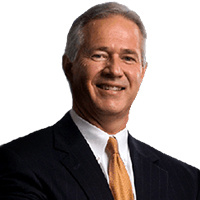Mabank White Collar Crime Lawyer, Texas
Sponsored Law Firm
-
 x
x

Click For More Info:
-
Law Office of Robert R. Jones III
2411 Emancipation Ave, Suite 202, Houston, TX 77004» view mapCriminal Defense Expert Representation for Reasonable Rates
If you need representation, call me 24/7.
800-883-8760
John R. Teakell
✓ VERIFIEDCriminal, Federal Appellate Practice, DUI-DWI, RICO Act, White Collar Crime
John R. Teakell has over 30 years experience in criminal law as both a prosecutor and criminal defense attorney. Those charged with serious crimes see... (more)
Volney Laron Brand
✓ VERIFIEDBusiness, White Collar Crime, Federal, Accident & Injury, Employment
Volney Brand is a practicing lawyer in the state of Texas. Attorney Brand received his J.D. from the University of Iowa in 2009.
FREE CONSULTATION
CONTACTFREE CONSULTATION
CONTACTDan C. Guthrie
International Tax, Health Care Other, Health Care, White Collar Crime, Securities Regulation
Status: In Good Standing
FREE CONSULTATION
CONTACTScott Smith
DUI-DWI, Domestic Violence & Neglect, International, , White Collar Crime
Status: In Good Standing Licensed: 45 Years
 Robert Jones San Antonio, TX
Robert Jones San Antonio, TX AboutLaw Office of Robert R. Jones III
AboutLaw Office of Robert R. Jones III Practice AreasSpecializations
Practice AreasSpecializations


